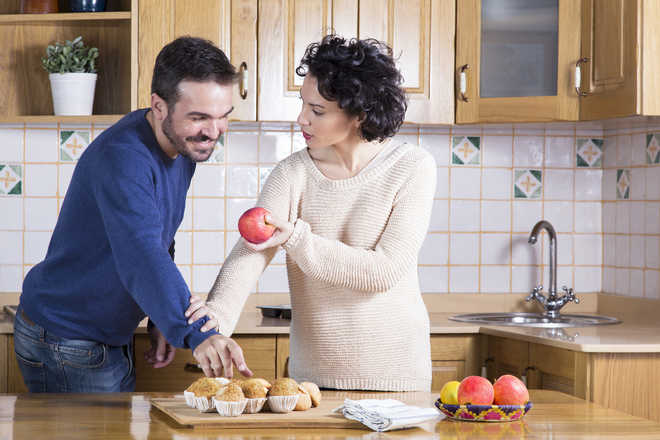London, May 23
Your partner’s body mass index (BMI) can predict your risk of developing diabetes, according to which a study has found that men are particularly more prone to developing the metabolic disease if their wife is obese.
Researchers from University of Copenhagen and Aarhus University in Denmark examined data from 3,649 men and 3,478 women in the UK.
On a global scale, 422 million adults have diabetes according to World Health Organisation (WHO), and it is estimated to cause 1.5 million deaths.
“We have discovered that you can predict a person’s risk of developing type 2 diabetes based on his or her partner’s BMI. This means that you can tell whether a person has a heightened risk or not on the basis of the partner’s BMI,” said Jannie Nielsen, which has been published in the scientific journal Diabetologia.
From other studies the researchers knew that spouses are often similar in terms of body weight, among other things because people often marry someone similar to themselves and often share dietary and exercise habits when living together.
Therefore, the researchers also examined whether the heightened risk of developing type 2 diabetes of an obese woman, for example, was merely a result of her own body weight. Here the researchers found a difference between the two sexes.
“If we adjusted for the women’s own weight, they did not have a heightened risk of developing type 2 diabetes as a result of their husband’s BMI. But even when we adjusted for the weight in men, they had a heightened risk,” said Nielsen.
A man, whose wife had a BMI of 30, had a 21 per cent higher risk of developing diabetes than men whose wives had a BMI of 25 – regardless of the man’s own BMI.
The researchers have not examined why only the men still had a heightened risk after own weight adjustment. They do have a theory, though, which involves who is in charge of the household.
“We believe it is because women generally decide what we eat at home. That is, women have greater influence on their spouse’s dietary habits than men do,” Nielsen said, referring to a previous study, which showed that women more often than men are responsible for doing the household’s cooking and shopping.
Diabetes can cause complications and serious sequelae such as damage to the heart, kidneys and eyes. According to the Danish Diabetes Association, 35 per cent experience complications by the time they are diagnosed with diabetes. Therefore, early detection is vital.
“The earlier a disease is detected, the higher the potential for successful prevention and treatment. We know that type 2 diabetes can be prevented or postponed, reducing the number of years that patients have to live with the disease. Just as related complications can be postponed through early detection,” said Nielsen.
If type 2 diabetes is detected at an early stage, medical treatment can be postponed, and instead the patient can begin with lifestyle changes such as eating a healthy diet and doing more physical exercise.
Based on the study, Nielsen believes that early detection of type 2 diabetes can be improved if we change our approach to the disease.
“Our approach to type 2 diabetes should not focus on the individual, but instead on, for example, the entire household. If a woman has a heightened risk, there is a strong probability that it is shared by her husband,” she said.




 Driving Naari Programme launched in Chandigarh
Driving Naari Programme launched in Chandigarh































